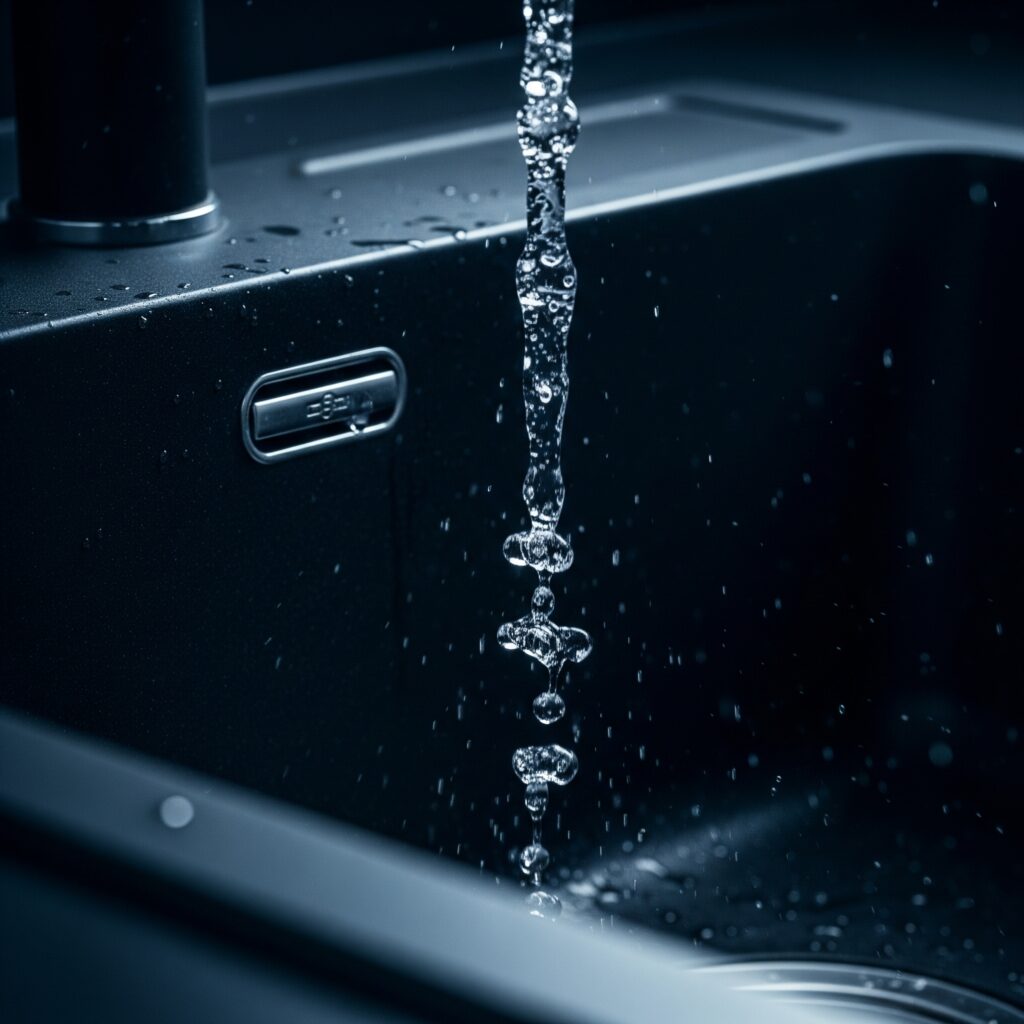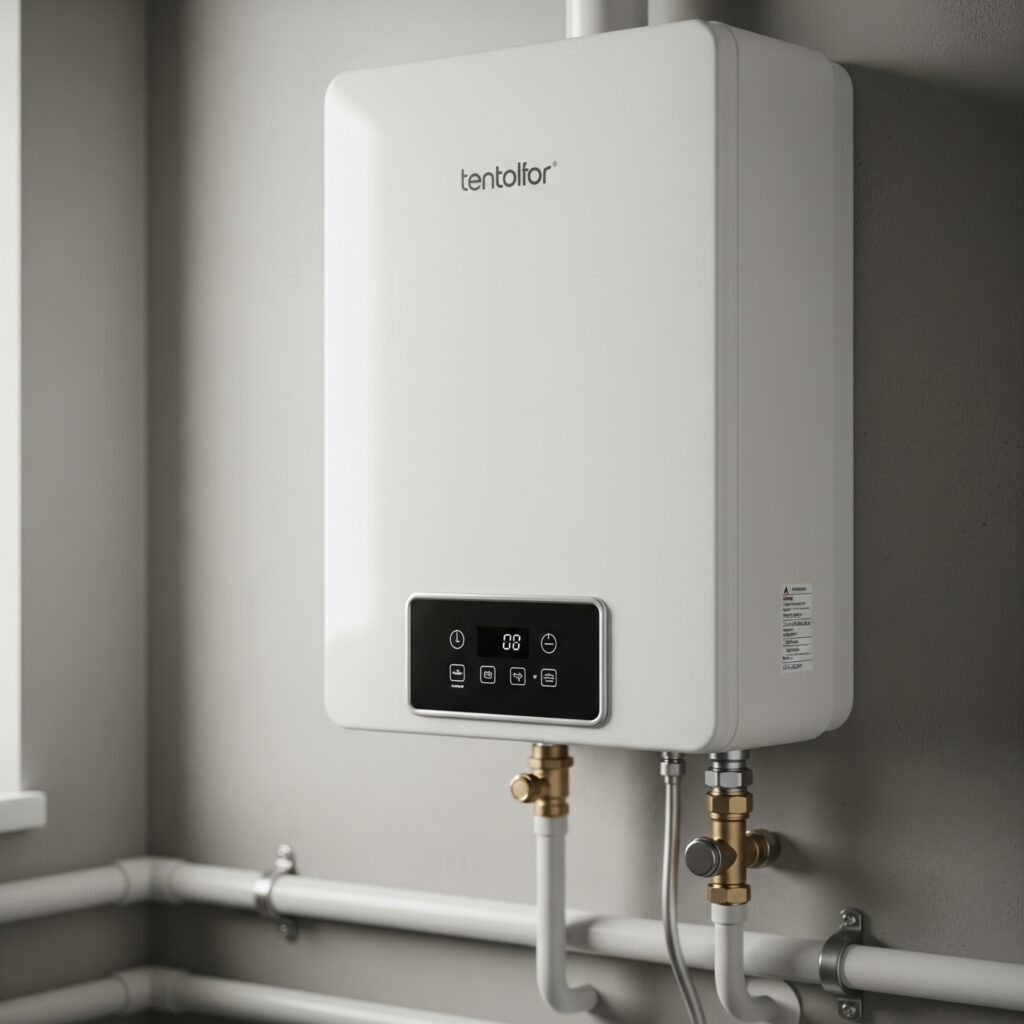Protecting Your Investment: What You Don't Know About Your Tankless Water Heater & Ice Maker
Living in Austin has its perks — great food, natural beauty, and a vibrant culture. But tucked away in your plumbing is something most homeowners overlook: hard water, and it could be quietly ruining some of your most expensive appliances.
What Is Hard Water—and Why Should You Care?
“Hard water” is simply water that contains higher levels of dissolved minerals—mostly calcium and magnesium. These minerals don’t pose any health risks, but over time, they leave behind a chalky white buildup called limescale.

In Austin, our water typically measures around 5 Grains Per Gallon (GPG). While that might sound harmless, anything over 3.5 GPG is considered “hard” and can start causing real problems inside your home’s plumbing and appliances.
You may already notice signs of hard water on the surface — like spots on dishes or buildup around faucets. But the more serious damage happens where you can’t see it: inside your appliances, where scale collects on heating elements, clogs valves, and quietly shortens the life of equipment like tankless water heaters and ice makers.
Tankless Water Heaters: Efficient, But Not Maintenance-Free
The Myth: Many people assume that tankless water heaters are a “maintenance-free” upgrade compared to traditional models.
The Reality: While they’re energy-efficient and compact, they’re also more sensitive to what’s flowing through them — especially hard water.
Here’s the problem: as water flows through the unit’s narrow heating coils, the minerals in hard water (mostly calcium and magnesium) start to bake onto the hot surfaces. This mineral buildup is called scale.
Over time, scale creates a coating that acts like an insulator, blocking the efficient transfer of heat. That means your water heater has to work harder and use more energy to get the same result — while also putting more strain on internal components.
Without regular descaling, this extra stress can shorten the unit’s lifespan significantly. A tankless heater that should last 15–20 years with proper care may burn out in as little as 10 years, leading to a premature replacement that can cost $3,000 or more.
Undercounter Ice Makers: Not Just About Clean, But Clear
The Myth: Many homeowners think keeping their ice maker clean just means wiping down the bin or running a rinse cycle now and then.
The Reality: While surface cleaning helps, it doesn’t address the biggest issue caused by Austin’s hard water — scale buildup inside the machine.
Just like with tankless water heaters, the minerals in hard water (calcium and magnesium) accumulate inside the machine’s internal components. This scale can coat the evaporator plate — the cold surface that forms the ice — and clog narrow water lines or jam moving parts.
When that happens, you may notice:
- Smaller or no ice production
- Cloudy or misshapen cubes
- Loud noises or grinding during operation
- Total system failure well before its expected 7–10 year lifespan
And with high-end models like Scotsman or KitchenAid costing $2,200–$3,500+, a breakdown isn’t just inconvenient — it’s expensive.
The Easy Fix: Descaling
Here’s the good news: all of this is preventable.
Descaling is a professional cleaning process where a specialized solution is circulated through your appliance to dissolve mineral deposits and restore performance.
- For tankless water heaters: Once a year keeps things running efficiently and avoids premature breakdowns.
- For ice makers: Every 6 months is best to maintain clear ice and proper function.

HomePoint: Your Partner in Proactive Home Care
At HomePoint, we’re not just here to fix what’s broken — we’re here to help you avoid breakdowns altogether. Our expert “Home Doctors” take a proactive approach to keeping your home’s most critical systems running their best, from water heaters to ice makers and beyond.
In fact, we’re trusted by a major home insurance provider to conduct preventive audits for their members. Why? Because we know what to look for — and how to stop small issues before they become expensive ones.
Don’t Let Hard Water Win
Hard water is part of life in Austin. But with the right maintenance, it doesn’t have to cost you comfort or cash. Let HomePoint help you protect your appliances, save energy, and extend the life of the systems that keep your home running smoothly.
